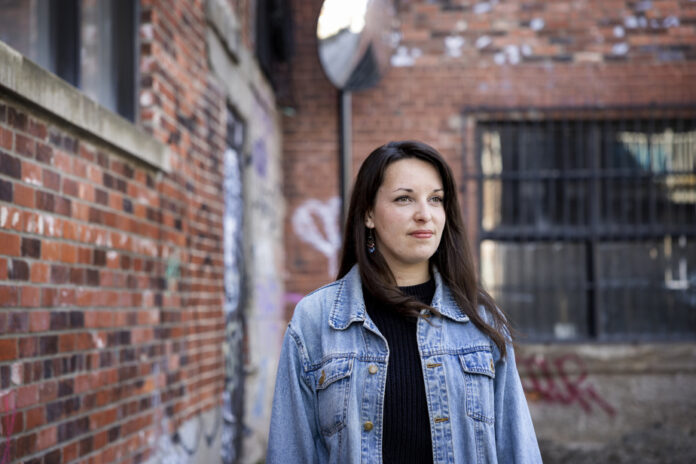Forget the madness. No carelessness here. They are called Manu, Stella, Imany or Yuna, they are between 13 and 21 years old, and they sacrifice their youth to save the planet. After us, an intimate documentary, presented tonight on Unis TV, takes stock.
Admittedly, the subject is not new, but the angle is. “We talk a lot about these young people, but we understand very little how it translates for them: living with blurred future prospects”, confirms in an interview the director Élise Ekker-Lambert, who is here on her very first documentary for television, after an award-winning short film at the Cinéma sous les étoiles festival in 2019 (Beijing-Hochelag).
She does not hide it: the subject speaks to her. At 29, barely older than her protagonists, Élise Ekker-Lambert hears the same thoughts around her: “Several have decided not to have children,” she says. It’s not catastrophic, but there is a kind of resignation, and I find that sad. »
Note that she began her search for After Us more than four years ago. Of the young people targeted at the start, met on the street or through social networks, only one participates in his film today. For what ? “Exhaustion,” she replies. They burned out or reoriented with the pandemic. »
Hence his sadness.
Unfair, because they sacrifice their carelessness, their youth in the process. They know that. And do not hesitate to say it, although gently. And that’s probably what makes the message so poignant.
The fifty-minute documentary therefore presents them in turn in their daily lives, in their action and their mobilization. This takes different forms, from protest to civil disobedience to drama. Each speaks directly to the camera to introduce themselves and confide, and some reflections are indeed unsettling. “We’re just young people sacrificing their education and their youth,” one will say. Instead of playing games or seeing friends, she goes “militant every Friday.” “I don’t want my generation to change the world,” said a second.
Disturbing, you say?
It’s that they didn’t ask for anything, but they are aware and politicized like never before, and in doing so find themselves with an immense weight on their shoulders. And it’s heavy. They are discouraged by the inaction of decision-makers, not to mention the generations that preceded them.
The documentary also features them in discussion with their parents. Their helplessness is palpable. A mother bluntly wipes away a tear as she confides: “I’m worried about his psychological well-being,” she tells the camera. Then, addressing his daughter: “I’m afraid you’re harboring this idea that between our generations, there’s something we haven’t done well. »
“The idea came to me from my own discussions with my parents,” continues Élise Ekker-Lambert. They don’t necessarily feel the same urgency. »
His film, which is intended as an invitation to discussion, ends on a note of hope. And it is obviously wanted, because hope is the engine of action, we understand. “We label young people, but it’s not the cause of young people,” concludes the director. This is the cause of the planet! And there has to be a conversation! That’s kind of the idea: bring this intergenerational dialogue. And it’s tonight, from 9 p.m., that it’s happening.















